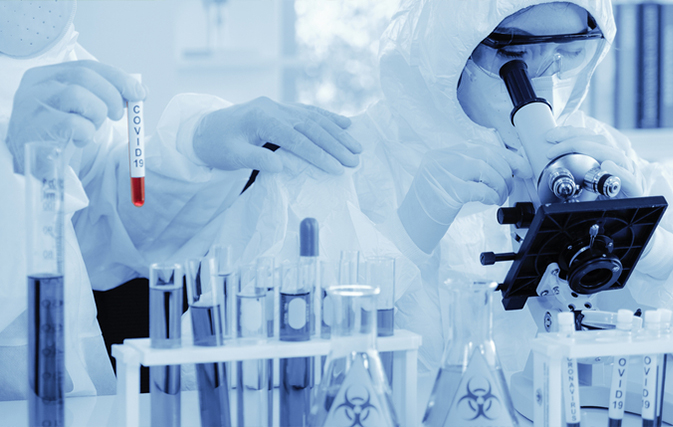TORONTO — An interim report released by McMaster Health Labs (MHL) on the COVID-19 testing project at Pearson Airport in partnership with Air Canada and the GTAA, and with support from the Government of Canada, shows that 99% of study participants tested negative for COVID-19, with 1% testing positive.
Of the 1% testing positive for COVID 19, 0.7% were detected on arrival; 0.3% were detected on day 7; and < 0.1% were detected on day 14.
These interim results of the Canadian International COVID-19 Surveillance Border Study are based on more than 20,000 tests conducted on more than 8,600 study participants recruited from Sept. 3 to Oct. 2, 2020.
Additional analysis and full results are expected to be shared in January 2021, says MHL. The final report will include information on infection rates within age groups and across genders, as well as data on the psychological impact of quarantine.
Up and running since early September, with an Air Canada-hosted event at Pearson on Sept. 3 to kick off the pilot project, the MHL study was established to gather data on COVID-19 infection rates of incoming international travellers, to help determine if an airport-based surveillance program is feasible, to determine whether self-collection of COVID-19 testing is effective, and to explore options regarding the 14-day quarantine for international travellers.
The study is the largest of its kind in the world, says MHL. The company says that while most other border testing studies have used a ‘test and release’ approach, the MHL study is unique in collecting COVID-19 test data from individuals at three different time points: upon arrival and at days seven and 14, which provides a comprehensive data set for policy makers.
The pilot phase has demonstrated the feasibility of airport-based testing with self-collected nasal/oral swabs as well as home-based collection during quarantine, says MHL.
“Interim results from the border study support a test and reduced quarantine approach such as that being piloted in Calgary,” said Dr. Vivek Goel, co-principal investigator of the study, professor at the University of Toronto and a former CEO of Public Health Ontario. “Testing upon arrival with a follow-up test to catch later positive results could provide a reasonable path forward to help keep borders and the economy open while maintaining public safety.”
Experts agree that COVID-19 will be with us for some time and that testing will be a critical part of the strategy needed to keep borders open and to stop restrictive lockdowns to contain the virus – even if a vaccine emerges, he added.
“The border study provides public health officials with critical information to support decision making through the pandemic,” said Dr. Marek Smieja, MHL scientific director, co-principal investigator of the study and a professor of pathology and molecular medicine at McMaster University. “In addition to demonstrating the feasibility of conducting COVID-19 testing at the airport, the study has also shown the effectiveness of a self-collected COVID-19 sample using a cheek and nasal swab that is completed in minutes.”
Dr. Jim Chung, Air Canada’s Chief Medical Officer, added that the interim results “are very encouraging and provide robust data for governments to make science-based policy decisions with respect to safely reopening our country. The updated results strongly suggest that some form of a testing regime can provide a viable alternative to a blanket, 14-day quarantine requirement and also provide a mechanism to reduce travel restrictions more generally.”


